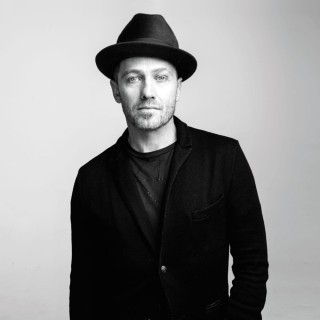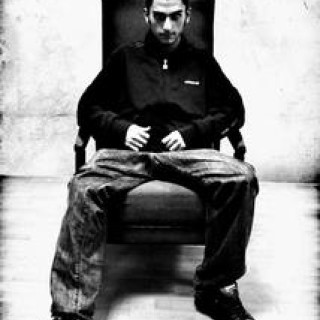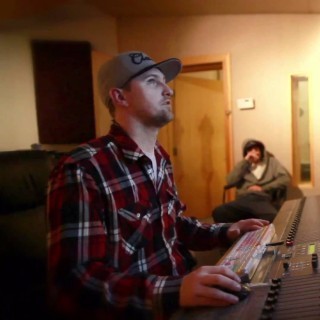
1.3 - 21st Century Literacies - Part 1
Cathy Davidson
Lectures: "The History and Future of (Mostly) Higher Education"
27.01.2014
154
Rap
Tekst piosenki
Hi. Oh, sorry. You caught me texting. That's going to be the subject of this segment.
We talked last time about the four great information ages, and today we're going to be talking about the final one, the fourth one, that begins on April 22, 1993. You'll remember the first four, as categorized by historian Robert Darton, are: the Invention of Writing in Ancient Mesopotamia in roughly 4000 BCE; 2) the Invention of Movable Type, which begins in China in the 10th Century, makes its way across the Silk Road and through Europe and is sort of given glory by Gutenberg in the Reformation era, the end of the 15th Century; 3) the last information age, being the age of Mass Produced Printing, steam-powered presses, machine-made paper, machine-made ink, which made books available to middle and working class people for the first time in history. That used to be my specialization, that last information age and the effect of that information age on literacy; democracy; sociality; and the history of education.
Today we're going to be talking about the fourth information age beginning April 22nd, 1993 when the University of Illinois and scientists there decided in conjunction with the Federal Communications Commission and, in fact, Al Gore that the internet was something too big and too important for scientists; the government; policy makers; and other academics, and they should be available to anybody in the world. April 22nd is the official day. So basically we're talking about 20 years ago that suddenly the internet became available to anybody with an internet connection. What, to me, defines our information age-- if I could just, in 50 words or less, say what defines our information age-- is the astonishing ability to have an idea, to go to my computer, to write that idea, and have it received by anybody else in the world who has access to an internet connection.
In all the four great information ages something changed so drastically about communication that many other social orders were changed as result. This astonishing power, responsibility, and challenge of self-publishing, in the largest sense of the word, is what marks our own era. Basically, what we're going to be talking about throughout this whole course is how the history of education, especially higher education that
was designed for the last information age works or does not work for the fourth information age, the one we're in now.
With each of the information ages as we've seen comes a whole road, host of fears, including with our current one. And it's interesting to see the fears of our present information era in the context of fears generated by previous information ages. So for example many people-- and there's all kinds of scientific studies about this-- have decided that memory is somehow damaged forever, because now you don't need to memorize everything; you can Google it. In a book I wrote about this information era, called, Now You See It: How The Brain Signs of Attention Will Transform The Way We Live, Work and Learn, I reviewed a lot of the cognitive neuroscience about such things as memory. And one thing that becomes very, very clear is memory is totally-- not totally, but hugely culturally specific. So for example, there are ancient aboriginal tribes in Australia where the pass code of being able to move freely from your territory to somebody else's territory is you have an enormous store of memories of every member of your group or clan and all the interactions they've had with the other person's group. And you go back and forth until you can find enough common ancestors that passage is permitted; this is again an oral culture, pre-literate form of communication.
But many people now, many neuroscientists now would say it's impossible to remember as much detail, data, as was the case for these oral cultures. But because safe passage required making a connection, and you had a much better chance of making a connection if you had a bigger mental database. In fact, people were able to remember all kinds of things. It's basically how it works with everything: if you need something, you can remember it. Of course, there are exceptions: senility, brain strokes; there are many, many things that damage memory. I'm not saying that and there's a lot of human variability in memory. But basically, a technology does not hurt your memory. It simply makes the need for certain kind of memory less urgent. So, an example I love to give is sure it may be the case that my students at Duke University don't remember every detail, and if they don't remember something they say no problem we'll Google it. On the other hand, basketball's a really big deal here, and if you're into basketball you don't Google statistics. You are able to remember every statistic from every game. This is an exaggeration, but probably every game that Duke has ever played. And part of safe passage from your turf to another turf. If you meet someone from another university, or somebody else on campus who has a different player they like or a different view of the team, is it's not so different than it is for the Australian tribes. You have such a database of memory that you're exchanging memory back and fourth, and sort of deciding who knows more; who's on top; who's the top dog; who isn't the top dog based on how much data you've memorized about the basketball teams.
There are some hilarious incidents in history-- again, remember our idea of history is we use history as an activist tool to think about the present and the future. There's some great historical examples about memory. When the slide rule was invented in the 17th Century, there was a whole world of pedantic mathematicians that said, mathematics is now over. If you have a device like the slide rule that takes way, it takes so much of your memory and puts it onto a mechanical device, there's no way you'll have the complexity of thought and you won't be able to memorize anything anymore. In the 1830s, also a mathematician at Yale, decided that he needed to write on a blackboard. Now the elite method of learning at an Ivy League school like Yale up until that point was what was called the recitation, where the professor and the student constantly recited and memorized work back and forth to one another. The idea that a professor would use a blackboard was considered demeaning to the great high esteemed recitators of Yale. And the students actually rioted when this professor introduced this radical new technology into his Yale classrooms. The students were expelled and after a while the, the trustees voted to reinstate the students, but only on the condition that they accept the blackboard; and pretty soon the blackboards spread like wildfire.
The point of that is, in every era, when what we have to memorize changes, we are convinced that it's our brain that changes. No, it's the social circumstances that have changed. So there's a lot of just unsubstantiated, or not very thoughtful, scientific work out there about memory loss in the new age. But what we're really talking about is memory substitution and a value of different kinds of mental operations over another. Rote memory may well not be as important in our society as it was before Google, but they're many other operations that are enhanced by that. Witness the astonishing explosion of invention that's happened since April 22nd, 1993.
Another thing that's been very, very worrisome to people is that we're going to use certain skills. In my own state of North Carolina there's
some legislators now who want to require cursive writing; specifically cursive writing. They're worried that younger generation prints instead of uses cursive. This is amusing to me because in the last information age, the one I wrote on for 20 years before I started studying the current internet age, the handwriting teacher was somebody who would go around and try to teach people how to write elegant handwriting. It was a class marker, a way of class passing. It was also a little bit of charlatanism. Typically the person who went around from village to village with his horse and cart and taught cursive was also selling snake oil medicine, often pornography, was doing sleazy magic tricks; was usually
a psychic. So you know, the history of cursive is hardly just an elite history. It's something we've come to expect so we think that there's a loss. Expectation and loss are not the same things.
Some of the other things that people have worried about because of the internet are the loss of central authority figure-- and we'll talk about that a lot more in this course in terms of open learning and peer-to-peer learning, which is not just about the loss of authority, but, in fact, the distribution of authority to lots of people so that DIY; iteration; modding; mixing; remash; remixing; mashing; mash-up; forking are all ways that code is developed collaboratively using the open architecture of the World Wide Web. And it's a model for learning that we'll be promoting and talking about as part of the future of higher education in this course.
The fact that there are fears about technology that may not be entirely grounded doesn't mean that technologies don't have real consequences. In fact, technologies do have real consequences, and there are winners; there are losers; and there are changers. I think it is certainly the case that journalism very quickly gave away its information for free, and very quickly found itself in a position of much, much reduced resources. Even at the same time-- and this I think is a social problem not a technological problem-- even at the same time that the 24-hour news cycle made breaking news and the constant crawl along the bottom of our TV screens put us all in a sense of constant crisis, as if the world is only a place of crisis. The music industry has been said to suffer badly because of free downloads and illegal downloads of music. Interestingly I think we may be turning a corner where the music industry is transforming itself into something different. It is relying certainly more on other forms of media, and on social media, for its own survival. The whole phenomenon worldwide of American Idol, and The Voice and other music shows that use TV shows related to public voting and social media to engage sales and increase sales of music, is a fascinating phenomenon. So is the local kind of freaky folk revival, folk music revival, the local revival, the local voyeurism of the new music industry. I don't know what it looked like ten years ago. Nobody knows.
Some people would say teaching, is one of the literacy things that's being jeopardized by this information age, and it's too early to tell. One reason I'm doing this MOOC by CourseEra is I, myself on my HASTAC blogs have many times expressed skepticism about MOOCs. I'm a huge proponent of open learning, which we'll be talking about at the end of this class as the future of learning. The relationship between MOOCs and open learning is very, very antagonistic. So, for an example, in an era where, for example, with Wikipedia, the whole world can contribute to these, to the biggest encyclopedia the world has ever known. We have something like MOOCs, located basically at Stanford; Harvard; and MIT, that are top-down purveyors of a certain kind of elite knowledge in the hands of very, very few elite professors who are talking out to the masses. I hate that model. It's one of the reasons why this particular MOOC is so dedicated to being almost an anti-MOOC, or a deconstructive MOOC, or a test case in the experiment to see if we can use this wonderful-- and it's totally wonderful-- global platform of the MOOC for a kind of global peer-to-peer learning.
Tłumaczenie
Brak
Polecani artyści
Najnowsze teksty piosenek
Sprawdź teksty piosenek i albumy dodane w ciągu ostatnich 7 dni


























